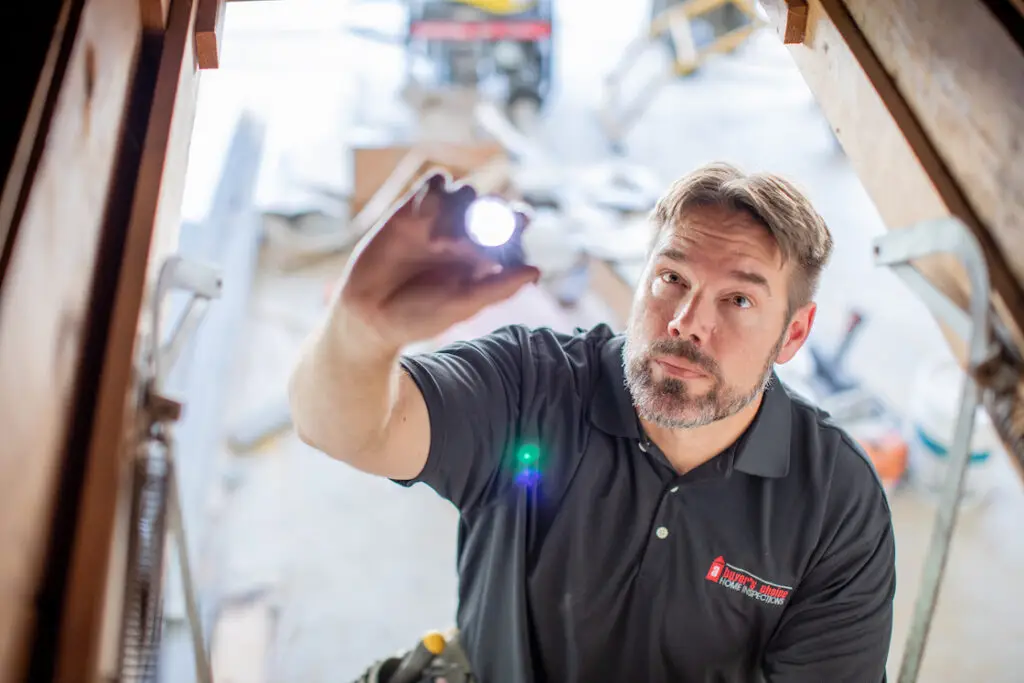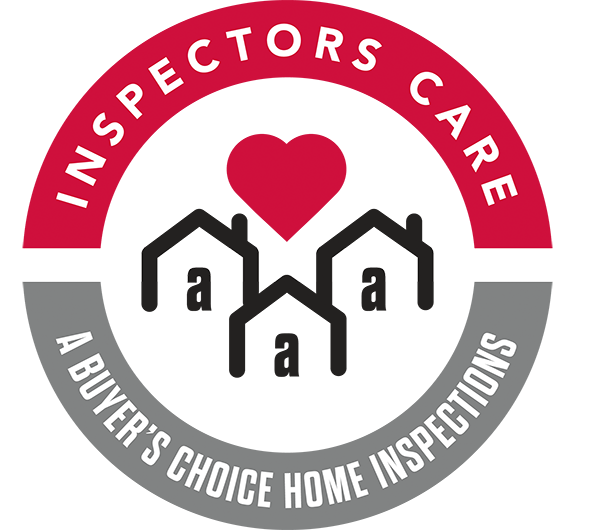Home Inspectors see houses differently.
Your home inspector’s focus while examining your property prioritizes major areas, including the mechanical, electrical and plumbing systems, as well as the roof and foundation, so that a comprehensive report can be provided to highlight big-ticket work that needs to be completed.
And although every inspector prides themselves on being as thorough as possible, there just isn’t enough time – or budget allotted – to check every little detail within a home. Additionally, there may be homeowner possessions present, such as furniture or big boxes, that obstruct certain views within the home. A home inspector isn’t permitted to move furniture or other items. The inspector would, however, typically document this in the report so that the potential buyer could inquire further with the seller’s realtor or investigate as part of their due diligence.
After you take possession of the property, you may discover something wrong with the house that wasn’t mentioned in the report. But before you conclude that your home inspector missed something during the inspection, it’s important to consider the following points.
Hidden or intermittent issues found after Home Inspections
Some issues may only become visible within a property while you’re actually living there, as opposed to within the span of a few hours that your home inspector is in your home. For instance, excessive rainfall can cause leaking issues to become evident in roofs and basements, when they otherwise remain dry. Some issues may also be covered up by flooring, drywall and even furniture.
Latent defects
Lawyers use this phrase to describe issues that exist within a home that can’t be detected using reasonable means, including a visual inspection and tools used by a home inspector. Unless a past issue is disclosed by the homeowner, without visual clues, it’s unreasonable to expect a home inspection to uncover this type of problem.
Minor issues overlooked
Since a home inspection focuses on identifying major defects within a property, not all minor issues will be noted. While opinions can also vary wildly on what is a minor issue, the inspector’s primary role is to point out if the home and its components are operating as intended. Often times, minor problems that are mentioned in the inspection report were discovered while looking for larger and more significant problems that could impact a homebuyer’s decision to proceed with the purchase. As such, minor issues uncovered during the inspection are often mentioned as an added courtesy to the buyer.
Contractor’s advice
A common source of concern with home inspectors comes from comments made by contractors. For instance, a contractor may believe a roof should be replaced whereas a home inspector reports that the roof may last a few more years with some minor repairs.
A contractor may also try to avoid conducting repairs as opposed to re-roofing the entire house. This is often due to the “Last One In Theory”. In this case, the contractor fears that if they’re the last person to work on the roof, they’ll shoulder the blame if the roof leaks, regardless of what prompted the leak.
If you find issues within the home after you’ve moved in, be sure to re-read your inspection report. While minor problems won’t all be spotted while your inspector is looking for higher-risk issues – and, therefore, not always be noted – there may be clues within the report. Feel free to call your inspector with any questions following the inspection, but remember that laying blame won’t help resolve the problems you’re facing. Often times, you home inspector is a great resource to help troubleshoot future issues and recommend the best route for repair.








